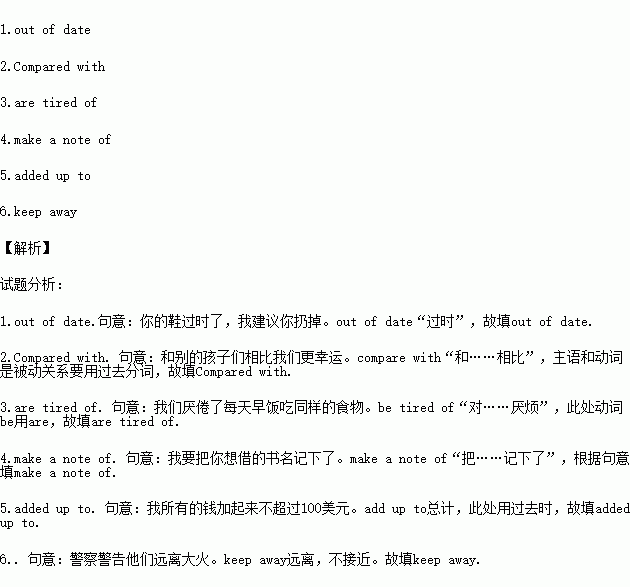题目内容
用所给短语的适当形式填空(每个短语限用一次)
be tired of , make a note of , out of date, keep away, compared with, add up to
1.Your shoes are _________ . I suggest you throw them away.
2._________ other children, we are luckier.
3.We ________ the same food for breakfast every morning.
4.I’ll ___________the books you want to borrow.
5.All the money I had __________no more than 100 dollars.
6.Police warned them to _________ from the big fire.
练习册系列答案
 阅读快车系列答案
阅读快车系列答案
相关题目

